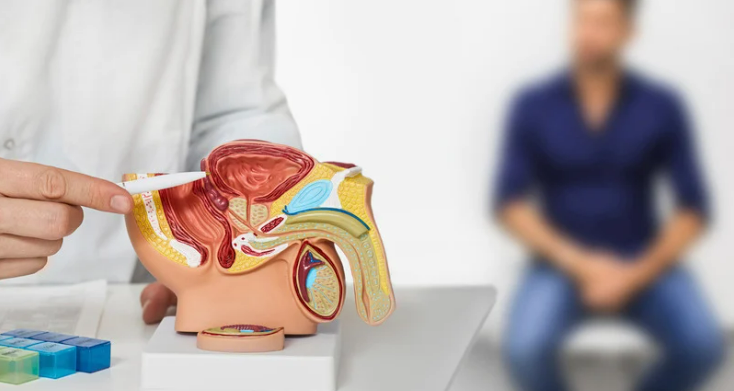The Gut Microbiome and Prostate Cancer: Unraveling the Connection
As research into cancer continues to evolve, the role of the gut microbiome has emerged as an intriguing area of study, particularly concerning prostate cancer. The gut microbiome, a diverse community of microorganisms residing in our intestines, not only aids digestion but also plays a significant role in influencing various health outcomes, including cancer risk and progression.
How the Gut Microbiome Influences Prostate Cancer
-
Microbiome Diversity and Cancer Risk: Emerging studies suggest that the diversity of the gut microbiome may be linked to prostate cancer risk. A balanced and diverse microbiome can help maintain immune function and reduce inflammation, both of which are crucial for preventing cancer development. Research indicates that specific bacterial populations in the gut may influence prostate cancer risk.
-
Inflammation and Tumor Microenvironment: Chronic inflammation is a known risk factor for various cancers, including prostate cancer. Certain gut bacteria can modulate inflammatory responses in the body. For instance, specific strains of probiotics have been shown to reduce inflammation markers, potentially influencing the tumor microenvironment and slowing cancer progression.
-
Metabolite Production: Gut bacteria produce various metabolites that can influence cancer development. Short-chain fatty acids (SCFAs), produced during the fermentation of dietary fibers, have been shown to exhibit anti-cancer properties. They can inhibit tumor growth and promote apoptosis (programmed cell death) in cancer cells, which may be beneficial in managing prostate cancer.
-
Hormonal Regulation: The gut microbiome also plays a role in hormone metabolism, including testosterone, which is significant in prostate cancer development. Certain gut bacteria can influence the levels of circulating hormones, potentially impacting prostate cancer risk and progression.
Personalized Approaches: Diet and Probiotics
Personalized nutrition and targeted probiotics offer promising strategies for managing prostate cancer risk. By analyzing an individual's gut microbiome, healthcare providers can recommend specific dietary changes and probiotic supplements tailored to enhance gut health and potentially reduce cancer risk. This personalized approach can help improve overall health and may play a role in cancer prevention.
Tips for Supporting Gut Health and Reducing Cancer Risk
-
Adopt a Plant-Based Diet: Emphasize the consumption of fruits, vegetables, whole grains, and legumes. These foods are rich in dietary fibers that promote a healthy gut microbiome and may help reduce cancer risk.
-
Include Probiotic-Rich Foods: Incorporate foods like yogurt, kefir, sauerkraut, and kimchi into your diet to boost your intake of beneficial probiotics.
-
Stay Hydrated: Proper hydration is essential for maintaining gut health and overall well-being.
-
Limit Red and Processed Meats: Reducing the intake of red and processed meats may help lower cancer risk and promote a healthier gut microbiome.
Overall, the connection between the gut microbiome and prostate cancer is an exciting area of ongoing research. By understanding and nurturing this relationship, individuals may take proactive steps toward reducing their prostate cancer risk. Incorporating a plant-based diet and personalized probiotics into your lifestyle can enhance gut health, support immune function, and potentially lower cancer risk.
References
-
Fujita, K., Matsushita, M., De Velasco, M. A., Hatano, K., Minami, T., Nonomura, N., & Uemura, H. (2023). The Gut-Prostate Axis: A New Perspective of Prostate Cancer Biology through the Gut Microbiome. Cancers, 15(5), 1375. https://doi.org/10.3390/cancers15051375
-
Huang, H., Liu, Y., Wen, Z. et al. Gut microbiota in patients with prostate cancer: a systematic review and meta-analysis. BMC Cancer 24, 261 (2024). https://doi.org/10.1186/s12885-024-12018-x
-
Matsushita, M., Fujita, K., & Nonomura, N. (2020). Influence of Diet and Nutrition on Prostate Cancer. International journal of molecular sciences, 21(4), 1447. https://doi.org/10.3390/ijms21041447


 Whatsapp us!
Whatsapp us!